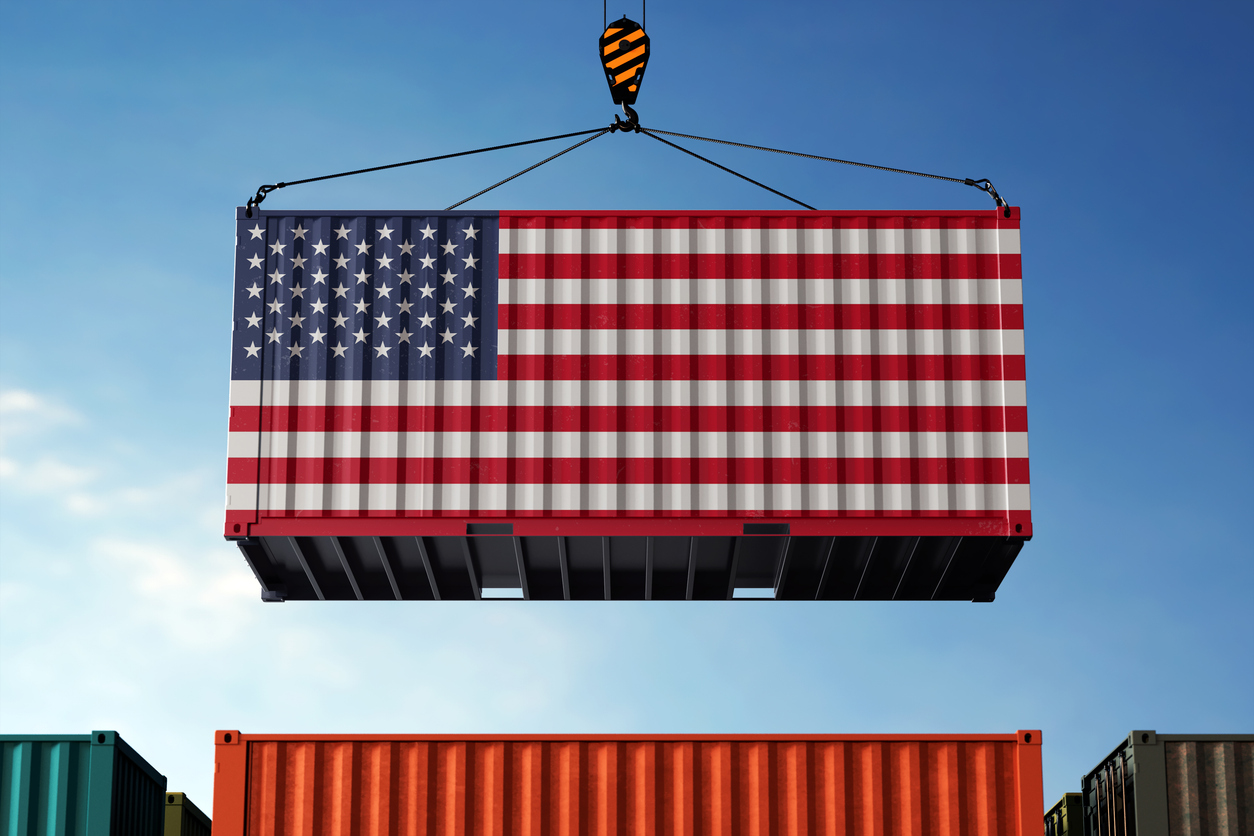As the Consumer Brands Association noted in a recent call with AgFunderNews, blanket tariffs on goods coming into the US—a key pillar of Donald Trump’s economic policy should he win a second term—could have a big impact on the food industry. But how might individual brands be impacted, and what about goods coming in from trading partners such as Mexico and Canada that are subject to existing trade agreements?
While the official Republican Party platform does not provide a figure, Trump has floated plans for a 10-20% tariff on all goods coming into the US and a 50-60% tariff on goods from China, noted analysts at TD Cowen in a note released as Americans headed to the polls on Tuesday.
“We view [Jack Daniel’s maker] Brown-Forman and [Corona maker] Constellation Brands as most negatively exposed. Diageo, Mondelēz International, Coca-Cola, and PepsiCo may experience some pressure, but to a smaller degree.”
>>Tell us what you think about what a Trump win might mean for the agrifood industry via this super-short survey to help inform our reporting in the coming days and weeks.
Are Jack Daniel’s, Johnnie Walker and Corona about to get more expensive?
In 2018 the EU imposed a 25% retaliatory tariff on American whiskey in response to President Trump’s tariffs on steel and aluminum, TD Cowen explained. The EU suspended the tariffs, but in the event of a Trump victory, there is a “high likelihood” of the EU reinstating and doubling tariffs on American whiskey.
With a 50% American whiskey tariff, it predicted, “We would expect Brown Forman to pass some cost along to the consumer, which would put additional pressure on volumes.”
Constellation Brands, meanwhile, brews beer exclusively in Mexico and is currently mid-way through building a new brewery in Veracruz. Hence a tariff on Mexican imports would “pose a significant challenge” to its supply chain and cost structure, said TD Cowen. “The company sources corn and barley from US farmers, transports the raw materials to its Mexican breweries in Nava and Obregon, and then transports packaged beer to the US.”
As for Diageo, blanket tariffs could hit multiple areas of its business, including tequila exports from Mexico to the US (accounting for 22% of Diageo’s sales in the US), Scotch exports to the US, and American whiskey exports to the EU should it implement retaliatory tariffs.
Mondelēz International, Coca-Cola, McCormick
A sizeable chunk of Mondelēz International’s biscuit sales in the US come from production in Mexico, noted TD Cowen, although the snacks giant has not disclosed how much. “If 15% of US sales come from Mexican production, then Mondelēz would face COGS (cost of goods sold) increase on approximately 6% of its total company sales.”
Spice maker McCormick also has a joint venture in Mexico producing goods that are exported to the US that would be impacted, it said.
Given Coca-Cola’s regional bottling footprint, however, “We don’t forsee significant tariff risk,” it added.
“A reignited trade war would reduce both US soybean and corn prices and the combined production area of the two crops. If it were to occur, a trade war would not only reduce the value of production for US farmers but also have a ripple effect throughout the U.S. economy. Meanwhile, farmers in Argentina and Brazil would see higher soybean and corn prices and be poised to more rapidly expand their production areas. The economies of these two countries would benefit from rising production value. In short, South America would gain on all fronts at the expense of US farmers and the US economy.” National Corn Growers Association (read more here)
‘Across the board tariffs applied to Mexico and Canada would violate the USMCA, full stop’
Overall, TD Cowen predicts that a higher tariff regime would have especially grim consequences for Mexico, “given that over 30% of the country’s GDP is from exports, mostly to the US.”
But what about the United States-Mexico-Canada Agreement (USMCA) and other US free trade agreements? Wouldn’t blanket tariffs breach these trade obligations?
Without question, said Jeffrey Schott, a senior fellow at the Peterson Institute for International Economics, who noted that Mexico’s new president Claudia Sheinbaum has herself hit the headlines in recent weeks with a “provocative” agriculture plan aimed at boosting domestic production of staples such as beans, corn, and coffee in a bid to boost food sovereignty.
“Across the board tariffs applied to Mexico and Canada would violate the USMCA, full stop,” Schott told AgFunderNews. “If broad new tariffs were imposed at the US border, there could be procedures for exemptions for various reasons or delayed implementation of the tariffs to allow for some market adjustment. And there definitely would be a lot of litigation against the US action both by domestic and foreign groups.”
Luis Rubio, executive partner in Holland & Knight’s Mexico City office told the publication Latinvex in July: “The USMCA provides that any of the parties can increase tariffs on products originated from any of the other parties only on exceptional and justified basis. A 10% increase on all tariffs seems far from being exceptional and justifiable.”
That said, if Mexico responds with retaliatory tariffs, he said, this would negatively affect consumers on both sides of the border and “further affect the commercial relationship with the US and eventually the future of the USMCA.”
Meanwhile, the consultation process and dispute settlement mechanisms in USMCA are “complicated and may take years to get resolved,” he said.
At the start of his first term, President Trump threatened to impose tariffs on Mexico as a negotiating tactic to address immigration issues but did not impose them. Tariffs introduced later on steel and aluminum imports affected many trading partners, including Mexico, but were lifted in 2019 as part of the USMCA negotiations.
Asked if he anticipated Trump using the threat of tariffs to renegotiate or pull out of USCMA, Schott noted that the USMCA is up for review in July 2026.
During the review, any of the three members can decline to extend the pact, starting an annual process of review of the pact which could lead to its termination in 2036, he said. “Of course, coercive tariff actions could occur before the review and lead to a blow up much sooner. The pact has a standard withdrawal provision which can lead to a country’s exit after a six-month notice [period].”
‘The three USCMA partners are going to do what they want’
Tom Madrecki, VP campaigns and special projects at the Consumer Brands Association, added: “Blanket tariffs would violate the terms of USCMA and be subject to Canada or Mexico filing a dispute or seeking countermeasures. The same goes for other agreements.
“I think the bigger thing to watch would be…. does it matter? In practical terms, frankly any of the governments can still seek imposition of tariffs or trade rules that violate the terms of agreement, and so my guess would be that regardless of what “they’re supposed to do / not supposed to do,” the three partners (US included) are going to do what they want.”
Canada: A temporary exemption to buy time for more detailed trade talks?
In a recent article exploring the impact of tariffs on Canada, Robert Both and Andrew Kelvin at TD Securities said their “base case is that Canada would see a temporary exemption to buy time for more detailed trade talks.”
But they added: “If Canada does not receive a permanent exemption to new tariffs, we would expect the federal government to retaliate with reciprocal measures on US imports.”
Further reading (includes more detail on the impact of tariffs):
How will Trump and Harris’ diverging agendas impact food, trade, and public health?














Sponsored
Sponsored post: The innovator’s dilemma: why agbioscience innovation must focus on the farmer first